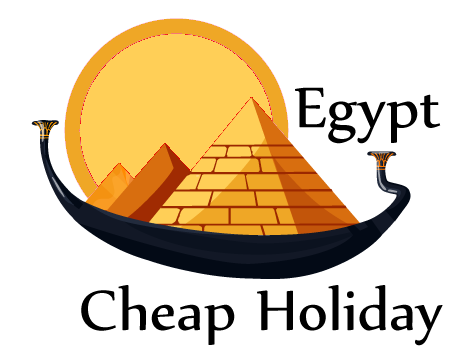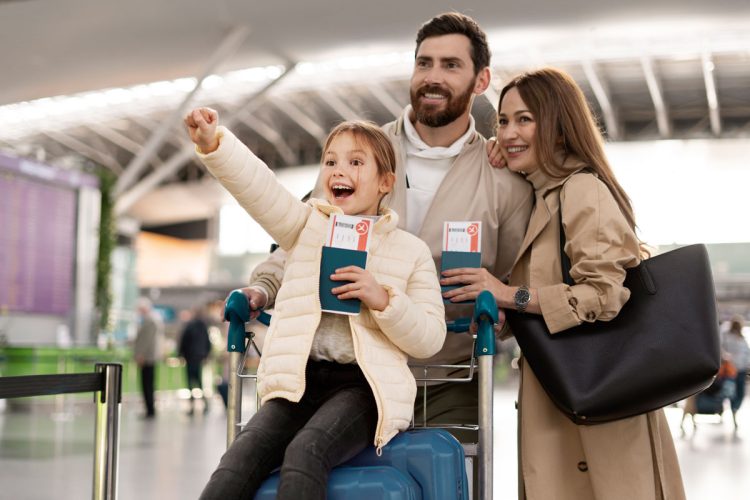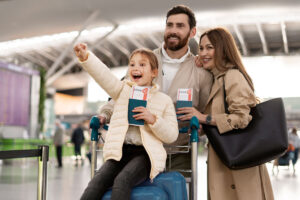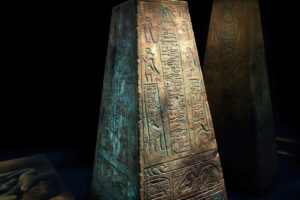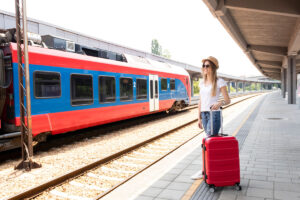Egypt, known for its ancient civilization and some of the world’s most famous monuments, including the Giza pyramids and the Great Sphinx, is a fascinating destination for travelers. However, it’s essential to prepare adequately and understand the local customs and conditions before embarking on your journey. Here are some essential travel tips for visiting Egypt.
Understanding the Culture and Customs
When visiting Egypt, you’ll likely encounter the warmth and hospitality that Egyptians are known for. Nonetheless, honoring their customs and traditions is essential to foster a positive and enjoyable interaction during your stay.
Here are some tips:
- Arabic is the official language, but English is widely understood in tourist areas. Learning a few Arabic phrases like “Shukran” (Thank you) and “Salam Alaikum” (Hello) can help break the ice.
- Egyptians are predominantly Muslims, so respect their religious customs. During Ramadan, eat and drink discreetly during daylight hours.
- In conversations with locals, avoid sensitive subjects like politics and religion.
Best Time for Visiting Egypt
- The cooler months from October to April are the best time to visit Egypt, as summers can be extremely hot, especially in the desert and ancient sites.
- The coastal areas of the Red Sea are pleasant for most of the year, making them great for sunbathing and water sports.
What to Wear?
Egypt is a predominantly Muslim country, so modest dressing is advisable. Women particularly should avoid revealing clothing. When visiting religious sites, both men and women should cover their knees and shoulders.
- Egypt is a predominantly Muslim country, So in respect for the local customs, opt for modest clothing that covers your knees and shoulders, especially for women.
- When visiting religious sites, both men and women should cover their knees and shoulders.
- Light, breathable fabrics are the best for the Egyptian climate. Don’t forget your sunhat, sunglasses, and sunscreen.
Money and Tipping
- The official currency is the Egyptian pound (EGP). Credit cards are accepted in many places, but it’s good to carry some cash for small vendors and tipping.
- Tipping, known as “baksheesh,” is common in Egypt. It’s customary to tip waitstaff, hotel staff, and guides.
Transportation
- Taxis, Uber, and Careem (a ride-hailing app similar to Uber that’s popular in the Middle East) are generally the most convenient ways to get around cities.
- For longer distances, trains and domestic flights are available. The overnight sleeper train from Cairo to Luxor and Aswan is a popular choice among tourists.
- Driving can be a stressful experience due to different driving norms, so it’s typically better to hire a driver or use public transport.
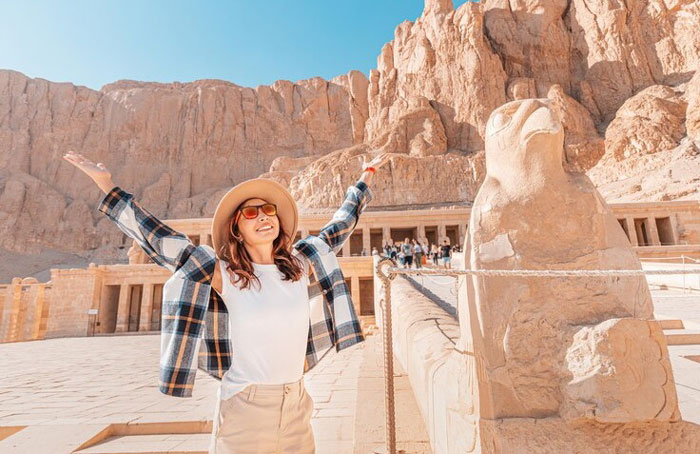
Must-See Attractions When Visiting Egypt
The Giza Pyramids and the Sphinx: These iconic landmarks are an unmissable part of any trip to Egypt.
The Egyptian Museum in Cairo: Home to thousands of artifacts, it offers a deep dive into Egyptian history.
Luxor and Karnak Temples: These ancient temples offer a fascinating glimpse into ancient Egypt.
Valley of the Kings: This burial site of Egyptian kings is famous for its well-preserved tombs.
Abu Simbel: The two massive rock temples are a testament to the grandeur of ancient Egypt.
Visa Requirements
Most travelers need a visa to enter Egypt. This can be obtained upon arrival or online before travel. However, requirements may have changed, so be sure to check the latest information.
Ensure your passport has at least six months’ validity from the planned date of return from Egypt.
Safety Precautions
Despite the occasional political unrest, Egypt is generally safe for travelers:
General Safety:
- Stay Informed: Regularly check travel advisories from your government’s foreign affairs department. They provide up-to-date information on safety and security conditions, areas to avoid, legal matters, and other important issues.
- Travel Insurance: Always have travel insurance that covers theft, loss, and medical problems. It’s a small investment to protect your health and belongings.
- Emergency Numbers: Know the local emergency numbers. The general emergency number in Egypt is 123, but there are separate numbers for ambulance (122), fire (180), and police (122).
- Avoid Demonstrations: As in any country, civil demonstrations can occur and may turn violent. Avoid these situations whenever possible.
- Avoid deserted areas at night and keep your belongings secure.
- Be wary of scams targeting tourists, especially around popular attractions.
Personal Safety:
- Be Alert: Keep an eye on your belongings at all times, especially in crowded areas like markets, bus stations, and tourist sites.
- Travel in Groups: There’s safety in numbers. If possible, try to travel with companions, especially at night.
- Avoid Isolated Areas: Stick to populated, well-lit areas, especially after dark. Be cautious if venturing off the beaten path or visiting less touristy areas.
- Beware of Scams: Be wary of common scams targeting tourists. This can range from overcharging and fake goods to more complex scams involving guided tours or taxis. Research common scams in Egypt to stay informed.
- Negotiate Prices: In many markets and with services (like taxis), prices are not fixed. Be prepared to negotiate to avoid being overcharged.
Health Safety:
- Hydration and Sun Protection: Egypt can be very hot. Protect yourself from the sun and stay hydrated. Use a hat, sunscreen, and drink plenty of water.
- Food and Water Safety: Stick to bottled water and avoid street food unless it’s from a reputable vendor and well-cooked. This can help you avoid common travel illnesses.
- Vaccinations:
Routine Vaccinations: Ensure that you are up-to-date on routine vaccines before every trip. These vaccines include measles-mumps-rubella (MMR) vaccine, diphtheria-tetanus-pertussis vaccine, varicella (chickenpox) vaccine, polio vaccine, and your yearly flu shot.
Recommended Vaccinations: The CDC and WHO recommend the following vaccinations for Egypt: hepatitis A, hepatitis B, typhoid, yellow fever, rabies, meningitis, polio, measles, mumps and rubella (MMR), Tdap (tetanus, diphtheria, and pertussis), chickenpox, shingles, pneumonia, and influenza. However, your personal need for these vaccines can depend on a variety of factors including your health, exact itinerary, what time of year you are traveling, and your vaccination history. Always consult with a healthcare provider for the most personalized and up-to-date advice.
Road Safety:
- Careful with Traffic: Traffic in Egypt can be chaotic. Be very careful when crossing roads, and if you’re driving, ensure you’re comfortable with different traffic norms.
- Use Registered Taxis or Rideshares: Using registered taxis or rideshare apps like Uber and Careem can reduce the risk of issues with drivers. These services also offer a degree of accountability and trackability.
While these safety precautions are important, they are not meant to alarm you. Most visitors to Egypt have safe and enjoyable trips. Stay alert, use common sense, and enjoy your journey through this fascinating country.
Food and Water Safety
- Water: Tap water in Egypt is generally considered safe to drink, but it’s often heavily chlorinated and can cause stomach upsets. To be safe, it’s better to drink bottled water. Also, remember to use bottled water for brushing your teeth.
- Food: Stick to food that is cooked and served hot. Avoid food served at room temperature. Do not eat raw or undercooked meats and seafood, and raw fruits and vegetables (unless they can be peeled by you).
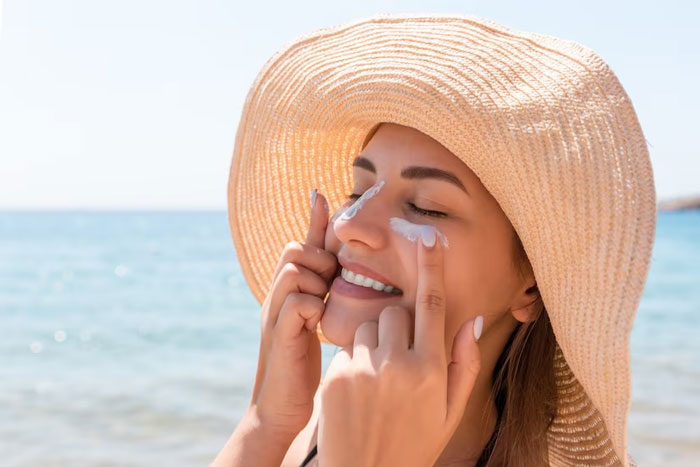
Heat and Sun Exposure:
Sun Protection: The sun can be intense in Egypt, so protect your skin by wearing sunscreen with a high SPF, a hat, and sunglasses. Also, try to avoid direct sun exposure during peak sunlight hours.
Stay Hydrated: It’s essential to drink plenty of fluids to prevent dehydration. Always carry a bottle of water with you, especially when you’re out exploring for the day.
Insect Protection:
Mosquitoes: Insect-borne diseases like malaria and dengue are not common in Egypt, but it’s always better to prevent mosquito bites by wearing long sleeves and pants, using insect repellent, and sleeping under a mosquito net if you’re in an area exposed to the outdoors.
Personal Medication:
1.Prescriptions: If you take prescription medication, bring enough to last your entire trip. Keep them in their original prescription bottles and always in your carry-on bag.
2.Diarrhea: Diarrhea is a common problem for many travelers. Bring over-the-counter medication to handle this, and remember to stay hydrated if it occurs.
General Hygiene:
Certainly, here are more detailed points concerning general hygiene when you are traveling:
- Personal Hygiene: This includes daily baths or showers, brushing your teeth at least twice a day, and washing your hands often. Also, carry a small hand towel or tissues for personal use.
- Hand Hygiene: Washing hands with soap and water is the best way to get rid of germs in most situations. If soap and water are not readily available, use a hand sanitizer that contains at least 60% alcohol.
- Face Touching: Avoid touching your face as much as possible to reduce the chance of transferring germs from your hands to your face, where they can enter the body through the eyes, nose, or mouth.
- Coughing/Sneezing Etiquette: Always cover your mouth and nose with a tissue when you cough or sneeze or use the inside of your elbow. Dispose of used tissues immediately and wash your hands afterward.
- Avoid Close Contact: Maintain a safe distance from people, particularly those who are sick or showing symptoms of illness. This is especially important in crowded places like public transportation, markets, and tourist sites.
- Cleaning and Disinfecting: Regularly clean and disinfect frequently touched objects and surfaces using a regular household cleaning spray or wipe. This includes things like phones, wallets, and keys.
- Healthy Habits: Get plenty of sleep, stay active, manage stress, drink plenty of fluids, and eat nutritious food. Keeping your body healthy is one of the best ways to prevent illness.
- Public Restrooms: Use a paper towel to open doors and turn faucets on and off in public restrooms to avoid direct contact with surfaces. If possible, use a disinfectant wipe to clean surfaces before you touch them.
- Food Hygiene: Only eat thoroughly cooked food, and avoid raw foods unless you can peel or shell them yourself. Be wary of food or drinks sold by street vendors.
Remember, the best person to provide health advice for your trip to Egypt is your healthcare provider since they have access to your medical history. Always consult with them before making travel plans.
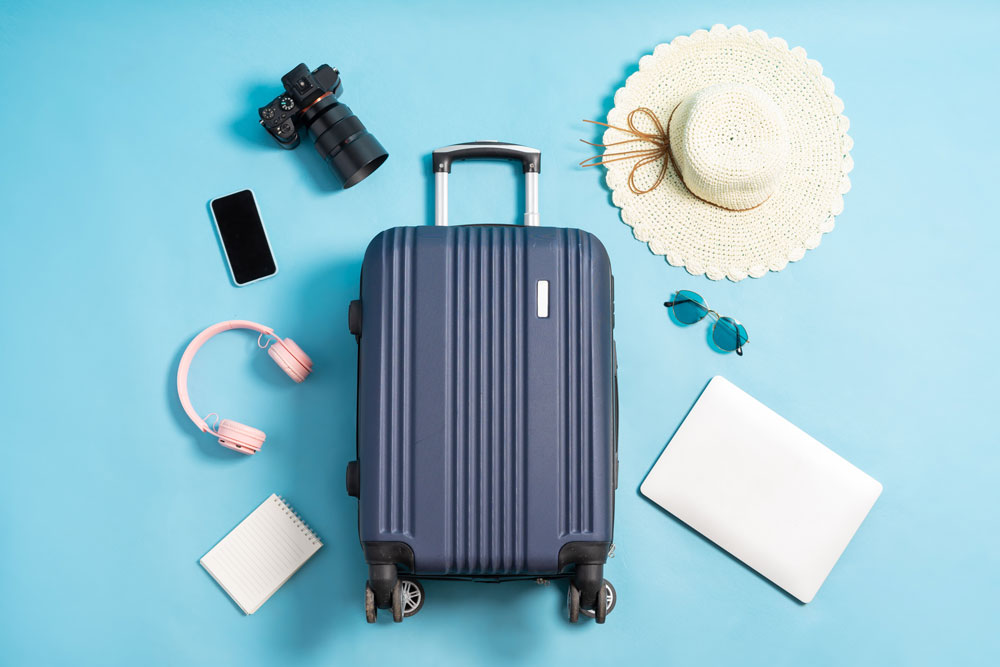
When preparing for your trip to Egypt, it is important to know what items to include in your luggage?
Clothing:
- Lightweight, breathable clothes: Egypt can be very hot, so opt for loose, lightweight clothing. Cotton or other breathable fabrics are your best bet.
- Modest clothing: Due to cultural norms, it’s recommended that you dress conservatively, especially in non-tourist areas. Women should pack long skirts or pants and tops that cover the shoulders.
- Swimwear: If you’re planning to visit the Red Sea or have a hotel with a pool, don’t forget your swimwear.
- Comfortable shoes: You’ll likely be doing a lot of walking, so comfortable shoes are a must.
- Jacket or shawl: The desert can be chilly at night, so bring something warm for the evenings.
Essentials:
- Passport and Visa: Don’t forget your passport and visa (if required), along with photocopies of these documents.
- Money: Bring enough cash for your trip as ATMs might not be available everywhere.
- Travel Insurance: Ensure you have a copy of your travel insurance policy.
- Travel Adaptor: Egypt uses type C and F plugs, with a standard voltage of 220 V and a frequency of 50 Hz.
- Medication: If you’re on any medication, bring it along. Also, consider a basic first-aid kit with band-aids, antiseptic wipes, and medication for common travelers’ illnesses like diarrhea.
Toiletries:
- Toiletries: While hotels often provide basic toiletries, it’s always best to carry your own, especially if you have specific brands you prefer.
- Sunscreen: The Egyptian sun can be intense, so high SPF sunscreen is a must.
- Insect repellent: This can be particularly useful if you’re visiting during the warmer months.
- Hand sanitizer and wet wipes: These are always handy when traveling.
Electronics:
- Phone and Charger: Don’t forget your phone and charger. Consider bringing a power bank for long days out.
- Camera: If you have one, bring it along with an extra memory card.
- Headphones: These can be useful for long flights or train rides.
Miscellaneous:
- Reusable water bottle: Staying hydrated is essential in the hot climate, and a reusable water bottle can be filled up at your hotel or restaurant.
- Snacks: It’s always a good idea to have some snacks on hand for when you’re on the go.
- A good book or download some movies: For those long train rides or flights.
- Guidebook: A guidebook can provide helpful information about the places you’re visiting.
Remember, it’s always best to pack light and only bring what you need. Most items can be purchased in Egypt if you forget something. Enjoy your trip!
